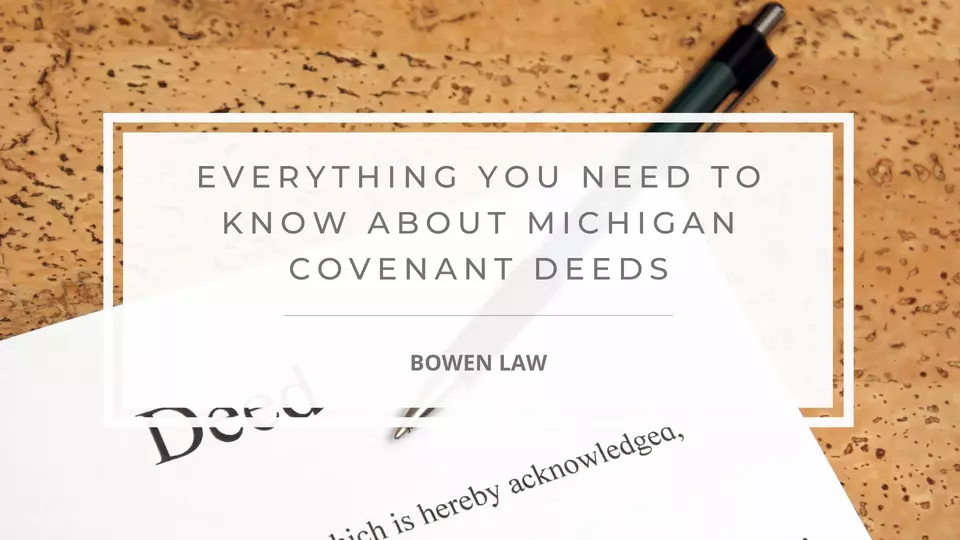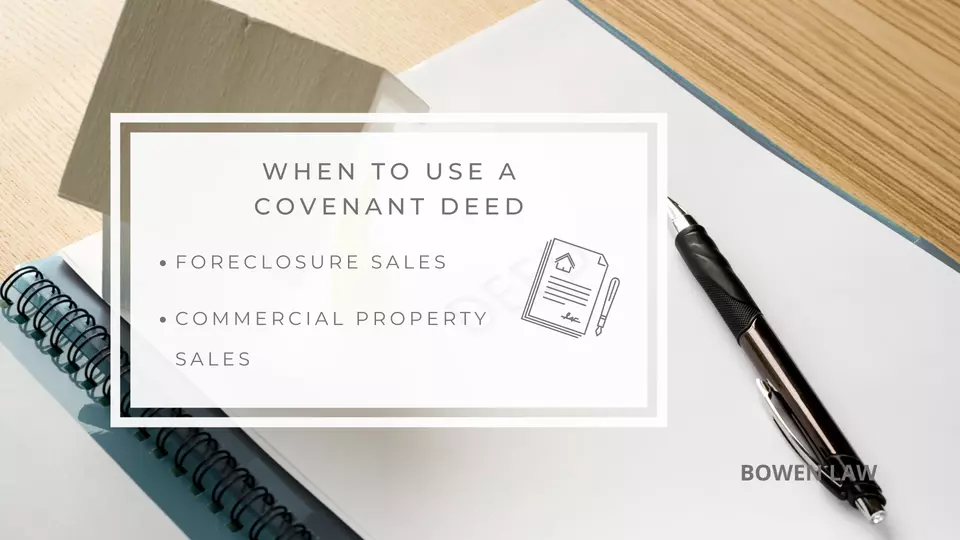A deed is a legal document required to transfer ownership of a property. In Michigan, there are three common types of deeds used in property transfers: warranty deed, covenant deed, and quitclaim deed. These deeds vary mainly in the degree of protection they guarantee to the parties involved against title problems.
Among the different types of Michigan deeds, this article particularly discusses what a covenant deed is, including the risks and benefits of using one in doing property transfers.
- What Is a Covenant Deed in Michigan
- What Is a Covenant in Real Estate
- Advantages of Covenant Deed
- How to File a Covenant Deed in Michigan
- Potential Risks of Covenant Deed
What Is a Covenant Deed in Michigan
A covenant deed is a document used by a grantor to transfer a property to a grantee. However, unlike other types of Michigan deeds, a covenant deed provides limited protection to the grantee, entailing that grantors are liable for any problems in the property only within the period of their ownership.
If you transfer property ownership using a covenant deed, you guarantee the grantee that the title is clean within your ownership period. This means that you have not done anything that would cause problems with the title while you are the property owner.
As the grantor, you are not responsible for any issues that existed before you held the title to the property. For example, if there were other interests on the property before you took ownership, you are not obliged to defend the title from these claims.
What Is a Covenant in Real Estate
A covenant in real estate, also known as a property covenant, is a binding agreement between two or more parties on the usage of a property. The covenant stipulates what the existing or future owners can and cannot do to the property, ensuring the maintenance of property value.
Property covenants can either be positive or restrictive. A positive covenant stipulates what you are obliged to do to the property, such as building a fence or maintaining a shared driveway. In contrast, a restrictive covenant prevents you from doing something to the property. For example, you might not be allowed to raise a pet or erect additional structures within your property.
Advantages of Covenant Deed
Though a covenant deed only provides a limited warranty on property transfer, there are instances where opting for one is more advantageous than using other forms of deeds in Michigan. Such cases include:
Foreclosure Sales
Upon foreclosure, the bank or financial company seizes the ownership of the property and sells it to an interested buyer. Such companies often utilize a covenant deed to speed up the sale of foreclosed properties. Opting for a warranty deed can complicate the process and may extend the time to complete the selling process. Despite the limited protection, many people are still willing to buy a foreclosed property since it is relatively cheaper than new ones.
Commercial Property Sales
The commercial property involved in the sale may have gone through different owners. As the grantor in a business property transaction, you can protect yourself from the liabilities resulting from the previous owner’s tenancy through a covenant deed. By using a covenant deed to transfer the commercial property, you won’t be held responsible for any encumbrances before you took ownership.
How to File a Covenant Deed in Michigan
Here are the steps on how to file a Michigan covenant deed:
- Obtain the legal information from the previous deed. The prior deed used to transfer the property to the current owner contains the information required to create a new deed, including the property description.
- Create a new covenant deed. Use the information from the previous deed and collect personal information from the grantee of the property to create a new covenant deed.
- Affix signature to the covenant deed. The grantor must sign the covenant deed in the presence of a notary public.
- File the covenant deed. After the covenant deed has been signed and notarized, it must be filed to the Register of Deeds located within the county to make it legal.
Potential Risks of Covenant Deed
In a covenant deed, the grantor ensures that the property title is free from any liens, claims, and other issues during the period of his/her ownership. However, if this is proven false, the grantee has the right to sue the grantor for breaching the deed.
On the other side, a covenant deed provides no protection to the grantee from any title problems that existed before the current grantor took ownership of the property. In such cases, the grantee has no choice but to resolve the issues on his/her own.
Your Covenant Deed Lawyers
Despite its limited protection, a covenant deed can be more beneficial than other types of Michigan deeds, depending on the nature of the property transfer. However, it is still best to hire a property attorney who can provide legal advice on the best action to take during the ownership transfer.
Here at Bowen Law, our experienced property lawyers can help you draft and file a covenant deed and ensure that the entire transfer process is done appropriately without any problems. You can contact us at (231) 726-4484 or reach us here.


